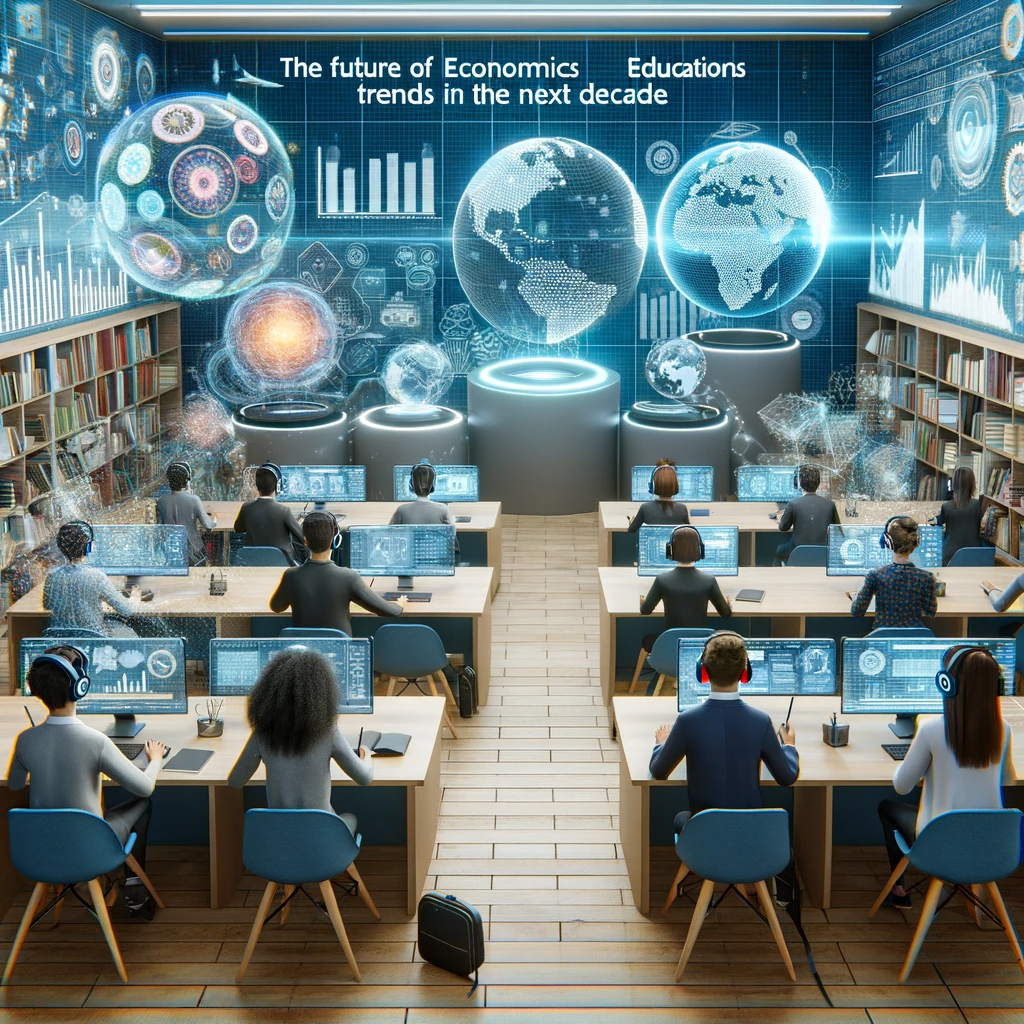The Future of Economics Education: Predictions and Trends for the Next Decade
The landscape of economics education is poised for significant change in the next decade. Rapid advancements in technology, evolving global economic challenges, and a shift in educational paradigms are all contributing to a transformation in how economics is taught and learned. This article explores the key trends and predictions that are expected to shape the future of economics education.

Emerging Trends in Economics Education
The future of economics education will likely be marked by several emerging trends, deeply influenced by technological innovation and a changing global economy.
Technology-Driven Learning
- Increasing Use of Digital Tools: Economics education will continue to embrace digital tools, including simulations, interactive models, and online platforms, making learning more engaging and accessible.
- Big Data and Analytics: The growing importance of big data in economics will see more curricula incorporating data analytics, teaching students to interpret and use large data sets effectively.
Global and Multidisciplinary Approach
- Global Economic Perspectives: As the world economy becomes increasingly interconnected, economics education will adopt a more global perspective, incorporating international case studies and policies.
- Integration with Other Disciplines: Economics education will see greater integration with other fields such as environmental science, political science, and technology, reflecting the multidisciplinary nature of contemporary economic issues.
Focus on Real-World Applications
- Case-Based Learning: There will be a shift towards case-based and experiential learning, where students can apply economic theories to real-world scenarios, enhancing their analytical and problem-solving skills.
- Collaboration with Industry: Partnerships between educational institutions and industries will provide students with practical experience and insights into real-world economic challenges.
Inclusivity and Diversity
- Diverse and Inclusive Curricula: Economics education will increasingly focus on diverse and inclusive curricula that represent a wide range of economic theories and perspectives.
- Accessible Education for All: There will be a concerted effort to make economics education more accessible to students from various backgrounds, leveraging technology to bridge educational gaps.
Predictions for the Next Decade
- Blended Learning Models: The traditional classroom model will evolve into a blended format, combining in-person and online learning to offer flexibility and a more personalized education experience.
- Rise of Soft Skills: Alongside technical knowledge, there will be a greater emphasis on soft skills such as critical thinking, communication, and ethical decision-making in economics education.
- Sustainability and Ethics: The increasing importance of sustainability and ethical considerations in economics will lead to these themes being more prominently featured in curricula.
- Customizable Education Paths: The future will likely see more customizable education paths, allowing students to tailor their learning to their interests and career goals.
- Lifelong Learning: As the field of economics continues to evolve rapidly, lifelong learning will become essential. This will result in the growth of continuous education programs and online courses for professionals.
Conclusion
The future of economics education is bright and dynamic, with significant changes on the horizon. These transformations will not only make economics more relevant and engaging for students but also ensure that the next generation of economists is well-equipped to tackle the complex challenges of a rapidly changing global economy. As educators and students, staying ahead of these trends will be key to success in the evolving landscape of economics education.


